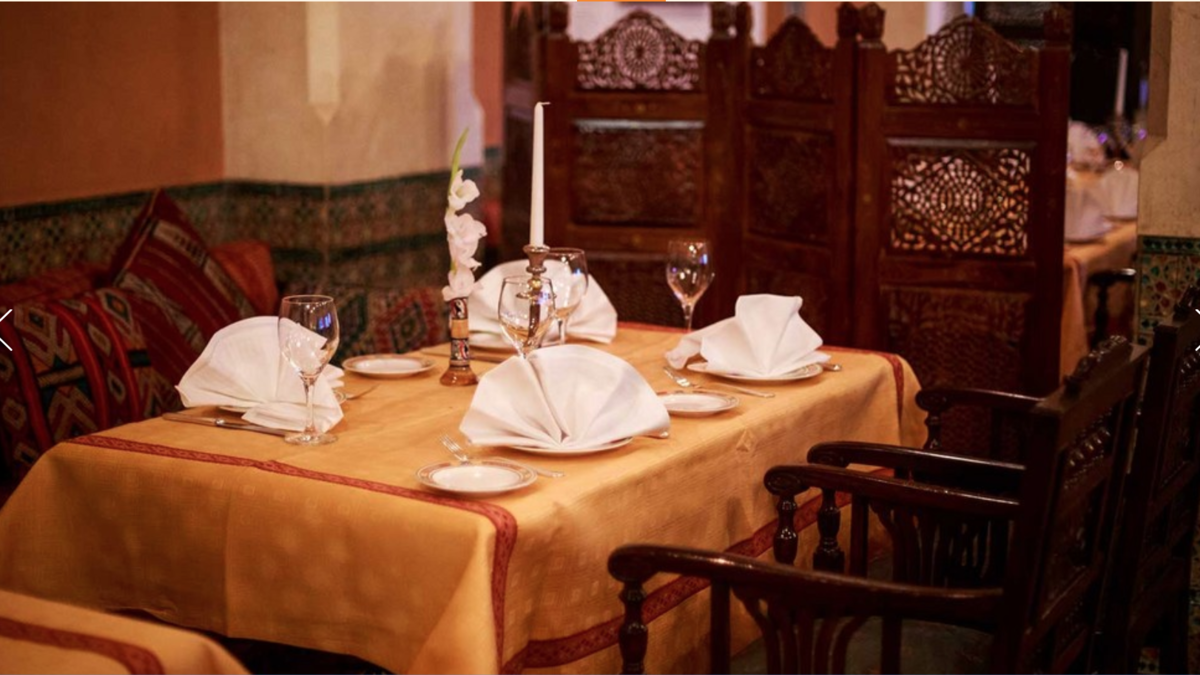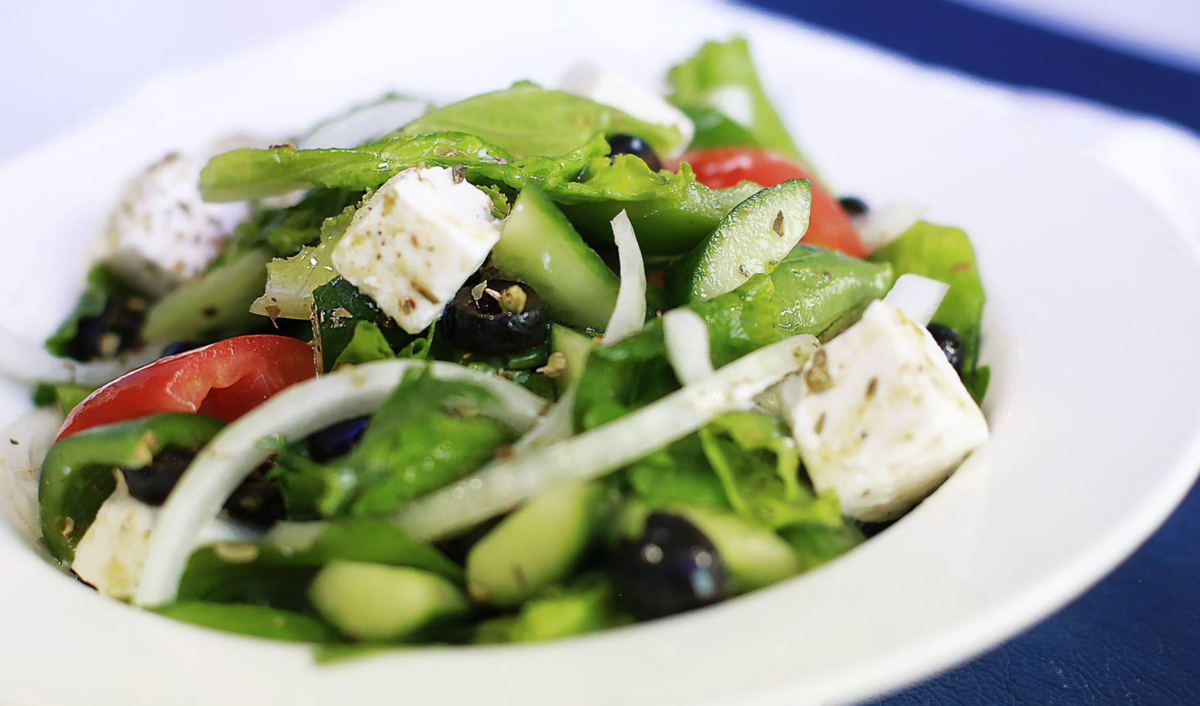ISLAMABAD: Craving kebabs, falafel or couscous? The best Middle Eastern restaurants in the Pakistani capital of Islamabad have all that and more, offering Arab cuisine, Lebanese specialties and Persian classics. Some spots like Omar Khayyam stick to faithfully concocted, authentic recipes passed down through generations, while others like Arz Lebanon take a fusion approach. So here’s a list of eight great places in Islamabad to eat the best pita, kebabs, spreads, and much more.
Arz Lebanon

(Photo courtesy: Arz Lebanon/Facebook)
Speak to any number of Arab expats in Islamabad and it will soon be clear that their go-to spot is Arz Lebanon, a medium-sized joint in the upscale Jinnah Super Market that offers a blend of Lebanese and Syrian cuisine. Whether you’re craving something as simple as pickles, hummus or bread or want an elaborate spread of kebabs or grilled seafood, Arz Lebanon is the place to go. The outdoor seating is definitely a plus, especially in Islamabad’s beautiful spring weather.
Omar Khayyam

Omar Khayyam is an Iranian restaurant that has operated for many years out of Islamabad’s Blue Area serving up traditional Irani fare like kubideh kabob and saffron crusted rice. (Photo courtesy: Peitupair/Instagram)
Omar Khayyam is an Islamabad institution. Tucked away in a basement in Blue Area, the traditional decor gives the restaurant an old world charm but the real winner is the Persian food. The barg kababs, featuring chunks of beef tenderloin, and jujeh kebabs, cornish hen marinated in lemon and saffron, come highly recommended, and are paired with nicely charred tomato and onions. There’s also a range of soups, dips, stews, and desserts on offer as well. But remember to take cash because they don’t accept credit cards!
Al Maghreb

Al Maghreb Decor: Al Maghreb in Islamabad’s Serena Hotel serves a myriad of dishes inspired by Lebanese and Moroccan food. (Photo courtesy: Serena Hotel)
With its intricate ceramic walls, arched ceilings and giant pink and gold chandeliers, a traditional Middle Eastern ambience awaits you in this exotically decorated restaurant in Islamabad’s grand Serena Hotel. House specialties include the Lebanese Mawzzatt — raised lamb shanks served with Lebanese rice, seasonal vegetables and roasted nuts — and the Al Maghreb Special Grill, a rhapsody of jumbo prawns, red snapper kebabs, lamb kofta, chicken and beef kebabs accompanied with potatoes and saffron rice.
Diwan-Arabic Cuisine

A traditional cheese based dessert called kanafeh at Diwan 2. (Photo courtesy: Diwan/Facebook)
Diwan restaurant in Islamabad’s iconic Beverly Center, home to a number of the city’s best food joints, is especially known for its Mandi, a traditional dish that originates from Hadhramaut in Yemen and comprises meat and rice with a special blend of spices, cooked in a pit underground. Or if you have a sweet tooth, try the Cheese Kunafeh — it’s to die for!
Syrian Taste

Frying up some goodness at Syrian Taste. The restaurant in F10 is owned and operated by Syrian students. (Photo courtesy: Syrian Taste/Instagram)
Syrian Taste in F-10 sector is slowly making a name for itself for fast and easy Middle Eastern street food. The cafe is owned and operated by a group of Syrian students who live in Islamabad. Their claim to fame is that they make a mean Arabic Shawarma. We’ve tried it and we couldn’t agree more!
Istanbul

Istanbul restaurant’s savory noodle dish with pistachio topping. (Photo courtesy: that_isloo_girl_08/Instagram)
This Turkish spot in Super Market turns out delicious cacik, a garlicky yogurt sauce, a memorable fried eggplant salad and thick yet airy bread that you can slather with pretty much everything. Also the best spot in town if you’re a fan of doner kebabs, a cousin of the Greek gyro and made of meat cooked on a vertical rotisserie.
Serai Bistro

(Photo courtesy: seraibistro/Facebook)
This bistro has three locations in Islamabad: in F-7/3, in Beverly Center and one in the Diplomatic Enclave. Although the restaurant offers pastas, paninis, burgers and steaks, there are also a range of Middle Eastern dishes to try. Go for the Mediterranean salad if you crave something light or order the Lebanese mixed platter to share with friends.
Al-Beirut

Al Beirut in F10 has been a staple of the Islamabad food scene since 1999, a shot of their full chicken over rice. (Photo courtesy: Al Beirut)
Had another one of those late nights at work when all the restaurants are closed by the time you get done and your fridge at home is empty? Worry not, because F-10’s Al-Beirut is open for delivery all night. Ask for extra garlic sauce with your mezze spread or mixed grill platter; you won’t be disappointed!

















